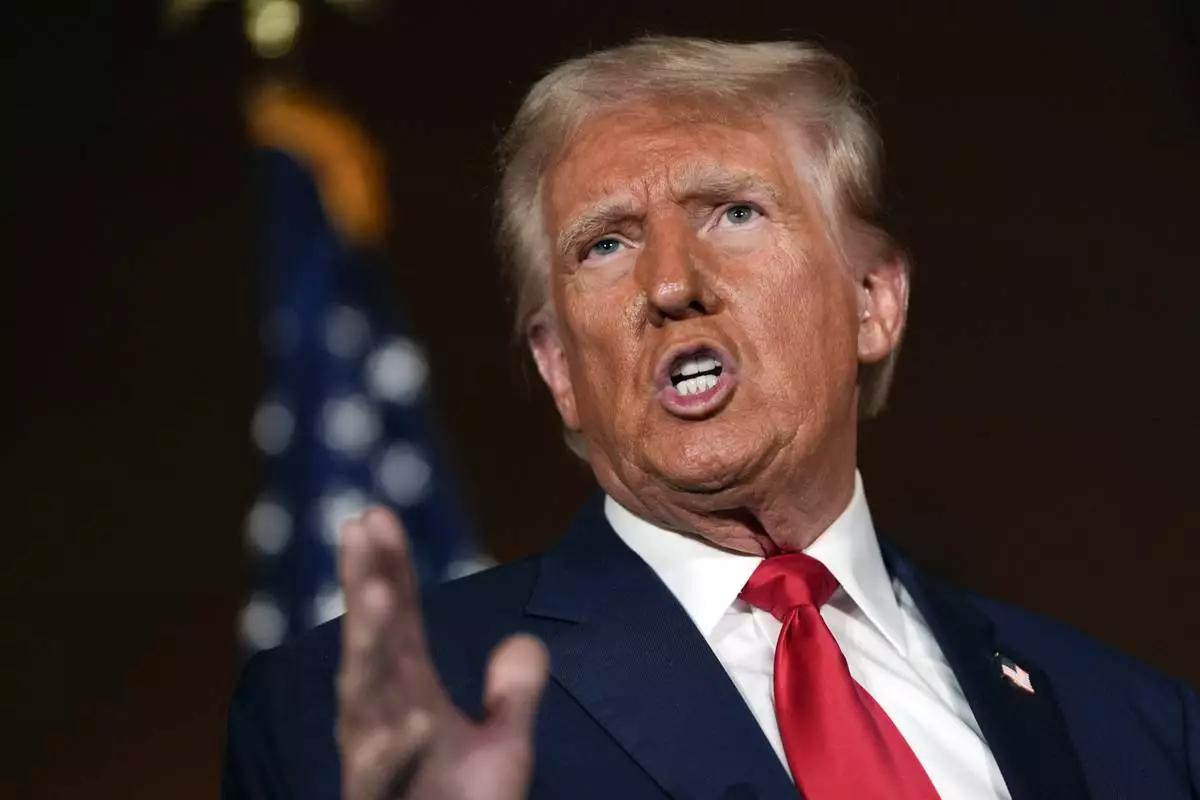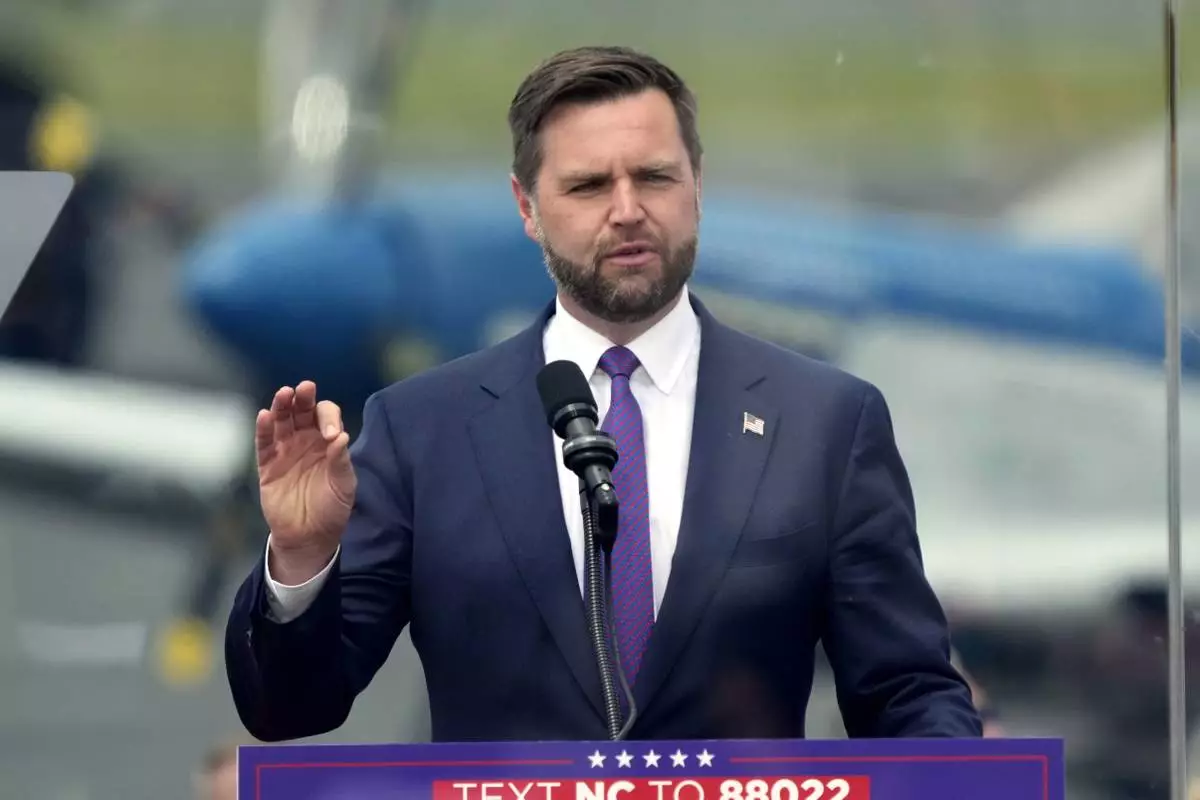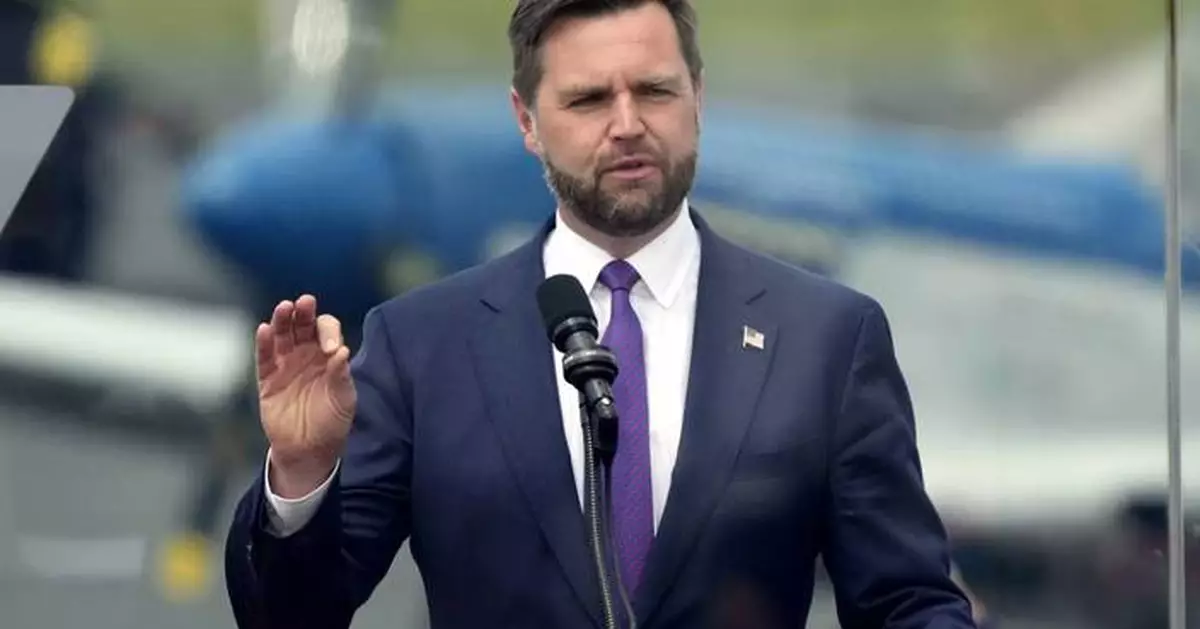NEW YORK (AP) — Republican vice presidential candidate JD Vance says Donald Trump would not support a national abortion ban if elected president and would veto such legislation if it landed on his desk.
“I can absolutely commit that,” Vance said when asked on NBC's “Meet the Press” whether he could commit to Trump not imposing such a ban. “Donald Trump’s view is that we want the individual states and their individual cultures and their unique political sensibilities to make these decisions because we don’t want to have a nonstop federal conflict over this issue.”
The Ohio senator also insisted that Trump, the former president who is the Republican nominee this year, would veto such legislation if it were passed by Congress.
“I mean, if you’re not supporting it as the president of the United States, you fundamentally have to veto it," he said in an interview that aired Sunday.
Vance's comments come after Democrats spent night after night of their national convention in Chicago last week assailing Trump for his role in appointing the Supreme Court Justices who overturned Roe v. Wade, ending the constitutional right to abortion in the United States and paving the way for bans and restrictions across Republican-led states.
But efforts to try to neutralize an issue that Democrats hope will galvanize voters this fall also risk alienating parts of Trump's base opposed to abortion rights.
“God have mercy on this nation if this is now the position of what was the Pro-Life Party,” wrote Family Research Council president Tony Perkins in a post Sunday linking to a story on Vance’s comments.
While Trump has repeatedly boasted about his role in overturning Roe, he has, in recent days, pushed back on Democrats' warnings that he will go even further to restrict access if he wins a second term.
“My Administration will be great for women and their reproductive rights," he wrote Friday on his Truth Social platform, appropriating language used by abortion rights activists and the left.
His comments drew a wave of criticism from anti-abortion advocates, including the editor of the conservative National Review, which published an article titled “Trump’s Abandonment of Pro-Lifers Is Complete.”
Trump repeated his claim hours later at an event in Las Vegas.
“I’m very strong on women’s reproductive rights. The IVF (in vitro fertilization), very strong. I mean, we’re leaders in it. And I think people are seeing that,” he told reporters.
Democrats have responded to Trump with deep skepticism.
“American women are not stupid and we are not going to trust the futures of our daughters and granddaughters to two men who have openly bragged about blocking access to abortion for women all across this country,” said Massachusetts Sen. Elizabeth Warren told NBC.
Trump ally Sen. Lindsey Graham, R-S.C., brushed off a question asking how Trump would be "great’ on reproductive rights.
“You need to ask him about that. What I would say is that President Trump was a very good pro-life president,” he told CNN's “State of the Union."
“The pro-life community," Graham said,, "is organized around the well-being of the child, giving the mother options other than an abortion.” Graham said "that movement will continue after he’s gone.”
Trump has often struggled to talk about abortion. Before he entered politics, he had described himself as “very pro-choice.” Earlier this year, he grappled with his stance on a federal abortion ban, suggesting at one point that he would support one at around 15 weeks of pregnancy, with exceptions in cases of rape, incest and when the life of the mother is at risk. He then settled on his current position: That restrictions should be left to individual states.
Trump has not said how he plans to vote on an upcoming ballot measure on Florida’s six-week ban.
In an interview with CBS News earlier in the week, Trump said he had “no regrets” about his role in overturning Roe v. Wade. But after months of confusing statements, he said he would not use a federal law known as the Comstock Act to try to ban the distribution of medication that is used as an alternative to surgical abortions. That is something that some of his allies have urged and that Vance supported in the past.
“We will be discussing specifics of it, but generally speaking, no," he said. “I would not do that."
“It’s going to be available and it is now. And as I know it, the Supreme Court has said: ‘Keep it going the way it is.’ I will enforce and agree with the Supreme Court, but basically they’ve said, keep it the way it is now,” he said.
Abortion has been a powerful motivator for Democrats since the Roe decision in the summer of 2022, and the party expects it to continue to play a key role this year.
On stage at the Democratic convention, women told harrowing personal stories of having to carry unviable pregnancies to term and being denied miscarriage care, putting their future fertility at risk.
“This is what’s happening in our country because of Donald Trump. And understand, he is not done,” Vice President Kamala Harris said in her speech accepting her party’s nomination.
Trump, who had been responding to the speech in real time, falsely insisted that, “Everybody, Democrats, Republicans, Liberals, and Conservatives, wanted Roe v. Wade TERMINATED, and brought back to the States."
“I do not limit access to birth control or I.V.F. - THAT IS A LIE, these are all false stories that she’s making up," he wrote. "I TRUST WOMEN, ALSO, AND I WILL KEEP WOMEN SAFE!”

Republican presidential nominee former President Donald Trump talks with reporters at a campaign event at ll Toro E La Capra, Friday, Aug. 23, 2024, in Las Vegas. (AP Photo/Julia Nikhinson)

Republican vice presidential nominee Sen. JD Vance, R-Ohio, speaks during a campaign event in Asheboro, N.C., Wednesday, Aug. 21, 2024. (AP Photo/Chuck Burton)










